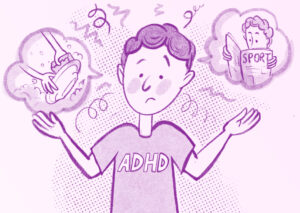Life can be unpredictable, challenging, and sometimes overwhelming. Everyone encounters moments when stress, anxiety, sadness, or confusion seem too much to bear alone. At these times, therapy offers a powerful way to regain control, find clarity, and cultivate lasting well-being.
Psychological therapy isn’t just for those in crisis — it’s a tool for anyone seeking to live more fully, cope better, and strengthen their emotional health. This article explores how therapy can profoundly improve your quality of life by enhancing mental health, relationships, self-awareness, and overall happiness.
Table of Contents
ToggleWhat Is Therapy?
Therapy, or psychotherapy, is a professional relationship between a trained psychologist or counselor and a client. It involves talking through your experiences, feelings, and thoughts in a safe, confidential space. Using various evidence-based techniques, therapy helps you understand yourself better, develop healthier patterns, and build resilience.
1. Therapy Helps You Understand and Manage Emotions
One of the fundamental ways therapy improves life quality is by teaching emotional awareness and regulation.
- Identify Emotions: Many people struggle to recognize and name their feelings. Therapy guides you in identifying emotions like anger, sadness, fear, or joy, which is the first step to managing them.
- Express Emotions Healthily: Instead of bottling up feelings or expressing them destructively, therapy teaches healthy communication.
- Manage Intense Feelings: Techniques like mindfulness, grounding, or cognitive-behavioral strategies help reduce emotional overwhelm.
This emotional intelligence leads to calmer reactions, better decisions, and greater peace.
2. Reduces Anxiety and Stress
Chronic stress and anxiety can impair physical and mental health, reducing your ability to enjoy life. Therapy helps by:
- Teaching relaxation and coping skills
- Challenging irrational or negative thought patterns
- Providing a non-judgmental space to process worries
- Developing problem-solving abilities
With therapy, clients often report feeling less anxious and more equipped to handle daily pressures, which boosts overall life satisfaction.
3. Improves Relationships
Healthy relationships are a cornerstone of happiness and well-being. Therapy can:
- Help you understand your relationship patterns
- Teach effective communication and conflict resolution skills
- Address unresolved trauma or attachment issues affecting connections
- Support couples or family therapy to strengthen bonds
As relationships improve, you may feel more supported, loved, and understood—dramatically improving your quality of life.
4. Builds Self-Esteem and Confidence
Many people struggle with self-doubt or negative self-image. Therapy helps:
- Identify sources of low self-esteem
- Challenge critical inner voices
- Celebrate strengths and accomplishments
- Set healthy boundaries and assert needs
This growing confidence empowers you to pursue goals, take risks, and engage fully with life.
5. Enhances Coping Skills for Life’s Challenges
Life often presents unexpected difficulties: illness, job loss, grief, or trauma. Therapy equips you with tools to:
- Process painful experiences
- Develop resilience
- Navigate change with flexibility
- Reduce feelings of helplessness
These skills help you bounce back from setbacks and maintain a positive outlook.
6. Promotes Mental Clarity and Decision-Making
Therapy provides a reflective space to sort through confusion, conflicting emotions, or difficult decisions. By talking things out, you can:
- Gain new perspectives
- Understand motivations and values
- Clarify goals and priorities
- Make decisions aligned with your authentic self
This clarity contributes to a more purposeful, meaningful life.
7. Helps Address and Prevent Mental Health Disorders
Therapy is vital for treating conditions like depression, anxiety disorders, PTSD, and more. It also serves as preventive care by:
- Detecting early warning signs
- Reducing risk factors
- Promoting emotional balance before issues escalate
Early intervention supports long-term well-being and reduces the burden of mental illness on daily life.
8. Supports Physical Health
The mind and body are deeply connected. Therapy can positively impact physical health by:
- Reducing stress-related physical symptoms (headaches, insomnia, digestive issues)
- Encouraging healthier lifestyle habits
- Supporting pain management and chronic illness coping
- Improving sleep patterns
Better mental health often leads to better physical health, enhancing overall life quality.
9. Encourages Personal Growth and Self-Discovery
Therapy is not only about solving problems — it’s about becoming your best self. Through exploration, clients often experience:
- Greater self-awareness
- Increased emotional maturity
- Stronger sense of purpose
- Enhanced creativity and motivation
This ongoing growth enriches your life far beyond symptom relief.
What to Expect from Therapy Sessions
Therapy is a collaborative process tailored to your needs. Depending on the approach used by your psychologist, sessions may involve:
- Open conversations about your thoughts and feelings
- Structured activities or exercises
- Homework assignments such as journaling or mindfulness practices
- Learning new skills for emotional regulation and communication
Most people find that after several sessions, they notice improvements in mood, outlook, and daily functioning.
Choosing the Right Therapist
A good therapist fit is crucial for positive outcomes. Look for someone who:
- Makes you feel safe and understood
- Respects your pace and boundaries
- Has expertise relevant to your needs
- Communicates clearly and empathetically
If you’re considering therapy with Arpan Sarma, you’ll find a compassionate, experienced professional dedicated to your well-being and growth.
Overcoming Barriers to Therapy
Many hesitate to seek therapy due to stigma, cost, or uncertainty. Remember:
- Therapy is a sign of strength, not weakness
- Confidentiality protects your privacy
- Affordable options may be available
- Starting therapy is the first step to a better life
Final Thoughts: Therapy as an Investment in Your Life
Investing time and effort in therapy pays dividends in every area of your life — emotional, relational, and physical. It helps you become more resilient, self-aware, and fulfilled.
If you’re struggling or just want to improve your mental and emotional health, therapy with a skilled psychologist like Arpan Sarma can be transformative. Don’t wait for a crisis—embrace therapy as a path to a richer, healthier, and happier life.







